Good Reason
It's okay to be wrong. It's not okay to stay wrong.
Page 45 of 126
Sarah Colwill is British, but her accent has changed since having a really bad migraine. Usually Foreign Accent Syndrome happens as a result of a stroke. That’s one whomping migraine, I must say. My sympathies.
People identify her accent as Chinese, but I don’t know. I’m leaning toward the idea that it’s not really a complete foreign accent (like you’d get if you were influenced by someone you knew with a foreign accent). I think the syndrome messes with your vowels, people hear you, and then they say, “Gee, you sound ___ (insert name of accent here).”
Here’s a test: If there’s someone in the room with you, play the audio for them, and get them to guess where her accent is from. (They’ll have to guess before the :20 mark because she gives it away then.)
But not only is it messing with her vowels, it also seems to be messing with her morphemes. Notice how she’s dropping endings off words:
And when I did speak, it sound Chinese. That last for about a week. And then I woke up again the next day, it sound more Eastern European. And it have been like that ever since.
I wonder if she was doing that before the migraine.
The saddest thing for me about FAS is how the speaker no longer identifies their voice as their own. Their own voice sounds strange to them.
“The first few weeks of the accent was quite funny but to think I am stuck with this Chinese accent is getting me down. My voice has started to annoy me now. It is not my voice,” added Colwill.
Judi Roberts felt the same way. After her stroke, her American accent changed to what people identified as British. She changed her name to Tiffany Noel, in accordance with her feeling that a part of her had died.
There are worse things that can happen to your brain, of course, but it’s hard to calculate the effect of no longer being able to sound like yourself.
Surprise, surprise: Kids beaten by their parents show more aggressive behaviour.
Now researchers at Tulane University provide the strongest evidence yet against the use of spanking: of the nearly 2,500 youngsters in the study, those who were spanked more frequently at age 3 were more likely to be aggressive by age 5. The research supports earlier work on the pitfalls of corporal punishment, including a study by Duke University researchers that revealed that infants who were spanked at 12 months scored lower on cognitive tests at age 3.
“I’m excited by the idea that there is now some nice hard data that can back up clinicians when they share their caution with parents against using corporal punishment,” says Dr. Jayne Singer, clinical director of the child and parent program at Children’s Hospital Boston, who was not involved in the study.
I’m secretly excited too.
“The odds of a child being more aggressive at age 5 if he had been spanked more than twice in the month before the study began increased by 50%,” says Taylor. And because her group also accounted for varying levels of natural aggression in children, the researchers are confident that “it’s not just that children who are more aggressive are more likely to be spanked.”
I’ve got a couple of great boys who I really respect as people, and who themselves are respectful. They’re not great at all of life’s tasks yet, but I’m not either. I’m not exactly sure how they turned out the way they have, but I do know that I’ve never hit them.
We all want our kids to know that there are consequences for their actions, but hitting them is a lousy consequence. It harms the relationship between parent and child, and a strong relationship is a major way to have input and influence on the child’s life.
There are better consequences than hitting. Good consequences are related to the behaviour. If toys aren’t put away, then the toys go away for a while, after a warning. And we need to let kids enjoy the good consequences of their actions: if they get ready for bed quickly, it’s more story-time.
It’s also good to play “What Happens Next”. “What might happen if we don’t lock the car?” “What do you think would happen if we left the milk out of the refrigerator?” This gets them thinking about the natural consequences of actions, instead of the artificial consequences that come from beatings.
I’ve heard parents respond to this in various ways:
“If they do something dangerous, like run into the road, they need a smack to tell them it’s not okay.
If the child is doing something dangerous, then we as parents need to control the environment so they can’t hurt themselves. We’re the big people; we can make the choices about the environment. We can make sure that doors are locked, that enticing delicate objects are out of reach. It’s hard to do, but good parenting is effortful.
“But children can’t reason at that age, and a smack is a direct way to communicate to the child.”
I suppose it’s true that children aren’t good at reasoning. This is why we teach them. We slowly and laboriously teach them all the things they need to do in their lives, including tying shoes, long division, toilet training, and riding a bike. Why do parents take an easy way out instead of teaching reasoning and logic, which is a skill more important than all those others? Perhaps because it’s the parenting we got, or perhaps because it’s considered acceptable by some.
But hopefully, as we get more knowledge about how violence against children affects their lives and their behaviour, it will become less and less acceptable.
At last, at last. Obama has realised that the Right Wing will go ape (complete with feces-flinging) over anything he does, so he’s doing what he wants.
President Obama thinks Republicans will engage in a full battle over his Supreme Court nominee regardless of the person’s ideological leanings, and in some ways “that realization is liberating for the president” to choose whomever he pleases, an administration official told TPMDC.
Oh, the irony. By being obstructive and tantrum-prone, Republicans are getting less than they would if they were reasonable.
It wasn’t always this way though. Democrats used to try to appease these apoplectic apes. Remember when ‘bipartisan’ was the buzzword? But bipartisanship only works when one party isn’t comprised of psychos.
I hope this is how Democrats do things in future. Ignore the antics and get on with the work, as the Party of Crazy sinks to irrelevance.
As humans, we naturally want to find the reasons for things. It’s what makes us such inquisitive critters, and it’s done us a lot of good so far.
Except that it also makes us superstitious. Why aren’t the rains coming? We should do something, but what? Pray to a god and starve ourselves? Believe in Allah? How about getting our daughters to plow fields naked? And so on.
If superstition is a normal human tendency, it’s one that can be overcome with a bit of practice. On the other hand, some people like to wallow in it.
Extramarital sex ’causes more earthquakes’, Iranian cleric claims
Attractive women who snub traditional Islamic clothing to instead wear fashionable clothes and apply heavy make-up, caused youths in the country to “go astray” and have affairs, Ayatollah Kazem Sedighi said.
The hard-line cleric said as a result the country, bounded by several fault lines, experienced more “calamities” such as earthquakes, the reformist Aftab-e Yazd newspaper reported him saying.
Iran is prone to frequent quakes, many of which have been devastating for the country.
“Many women who dress inappropriately … cause youths to go astray, taint their chastity and incite extramarital sex in society, which increases earthquakes,” he told worshippers at a Tehran prayer service late last week.
Heh. He said ‘taint’.
“Calamities are the result of people’s deeds.
“We have no way but conform to Islam to ward off dangers.“
Except perhaps to find out what really causes earthquakes, and how to make buildings that don’t fall down. You know, all that sciency stuff.
No word yet if the Iranian government is planning on putting more funding into morality-based tectonics. Perhaps they could also throw a little money toward political volcano research.
Via Hungry Beast.
Are some religions more loopy than others? Not intrinsically. I happen to think that all religions fall within a narrow band on the loopiness scale. If Scientology seems intrinsically wacky to you, then you’re probably just more familiar with stories about talking snakes, people made out of clay, dead people coming back to life, ritual cannibalism, and people floating up to heaven.
But are some religions more evil than others? Again, I’d say not intrinsically. Whether a religion is one of the ‘nice religions’ is more a function of who’s running it at the present moment. Giving someone the license to claim they’re acting in the name of a supreme being is just inviting abuse — which may or may not be exercised. The nice pastor of the Mild-Mannered Christian Church won’t be around forever. All the ‘bad scriptures’ will be in that bible, waiting for a charismatic extremist to come around. (Tick tick tick.)
Here’s where I disagree with the Beast: At the present moment, yes, some religions are much much worse than others, including fundamentalist Islam, fundamentalist Christianity, and probably fundamentalist anything else. And of course Scientology, for reasons mentioned in the clip. These religions are affecting lives and minds by controlling the information that reaches their people, and by not allowing them to leave.
So, for people keeping score at home:
Scientology: Bullshit.
Other religions: Also bullshit.
Criticising Scientology’s doctrines: Not bullshit.
Criticising Scientology’s doctrines more than other religions: Bullfuckingshit.
Criticising crimes done to promote Scientology: Not bullshit at all.
Being wary of the tendency for all religions to become oppressive: Quite a good idea, really.
Update: Blogger layouts narrower than the minimum YouTube video size: Total bullshit.
Today’s Pictures for Sad Children asks: what do you do when you no longer believe in your family’s religious tradition?
Oh, go on. You know what they say: It doesn’t matter what you believe, as long as you believe in something.
I’m reading through this book with Youngest Boy. It’s “Evolution: How We and All Living Things Came to Be” by Daniel Loxton. It’s really good. It has a good overview of evolutionary theory, with the evidence.
But there is one misstep, and it’s toward the end of the book.
If you can’t read that scan, here’s the text.
This is a question people often ask when wondering about evolution. They want to connect the discoveries of science to their religious understanding.
Unfortunately, this isn’t something science can help with. Individual scientists may have personal opinions about religious matters, but science as a whole has nothing to say about religion.
Science is our most reliable method for sorting out how the natural world functions, but it can’t tell what those discoveries mean in a spiritual sense. Your family, friends and community leaders are the best people to ask about religious questions.
I think this answer was trying to do two things: tell why science is good, and allow for the validity of religion. Those are probably good goals for a book like this, since they’re aiming for a broad audience, and the book wasn’t intended to be an atheist polemic. I can even see the benefit in not antagonising religious readers.
But I also think it’s important for scientists to tell the truth, and this answer sidesteps that responsibility. Here’s what’s wrong.
- It says that science can’t deal with supernatural claims, only natural ones. This is untrue. While the scientific method, with its emphasis on real-world evidence, can’t categorically disprove supernatural claims, it does tell us what to do when such a claim comes along: remain skeptical of it until its proponents provide real-world evidence in favour of the claim.
- It says that religious claims about creation are essentially supernatural. But creationist claims really involve the natural world, and can therefore be evaluated by science just like any other claim.
- It handballs the responsibility for answering questions over to family, friends, and community leaders — people who may be no better than anyone else at evaluating truth claims, or who may have an interest in promoting an unscientific view. Religious leaders are the ones who ought to be promoting religion, of course — that’s their job — but is that where we want to send young people for information about how evolution and religion interact?
I think the book should have said something like this:
Some religious people claim that evolution didn’t happen, or that it’s impossible. But according to the evidence we have, evolution is real, and it’s happening all around us.
Many religious people do accept evolution. They don’t see a conflict between evolution and their religion, or they see evolution as part of creation.
Whether you believe in a religion or not, you can use science to figure out how our amazing world operates.
This answer re-asserts the reality of evolution and the primacy of science, but it takes it easy on the conflict between religion and science. It allows that people have their own opinions, and is written not to be offensive.
I still think the book is really good. It’s interesting, has beautiful illustrations, and lays out the basics of evolutionary theory in a way young people can grasp. Even the religion question can lead to an interesting discussion.
The author responds to the criticism here.
Has a month gone by already? I’ve got a backlog on Talk the Talk, so here’s a load of links for your enjoyment and edification.
For the first three links, I’m on about 5/6ths of the way through the stream. Watch out; it starts playing as soon as the page loads.
– – – – – – – – – – – – – – – – – – – –
23 March 2010: American English
For this episode, I report live from the USA, and fittingly I’m talking about that special dialect known as American English.

– – – – – – – – – – – – – – – – – – – –
30 March 2010: Guys
Would you call someone a ‘guy’, even if they’re a ‘gal’? What about in mixed-gender groups? A recent article in the Boston Globe is raising issues about what to call people. Is there any better way of handling this in English? And what about other languages?
This time on ‘Talk the Talk’, we return to language and gender, with a look at this most peevish of language peeves.

– – – – – – – – – – – – – – – – – – – –
6 April 2010: The Munduruku
This week on Talk the Talk, we talk about numbers. In English, we have lots of names for numbers, but the Munduruku people of the Amazon have no words for anything higher than five. Experiments show that they’re good at estimating large numbers like English speakers are, but not so good at working equations using numbers they have no words for. Is it a case of language constraining thought? Or are both being constrained by culture?

– – – – – – – – – – – – – – – – – – – –
13 April 2010: Homer-nyms
We have the Simpsons to thank for such words as “D’oh” and “embiggen”. But what else do the Simpsons have to tell us about language? On this week’s ‘Talk the Talk’, we look at neologisms and derivational morphology. But don’t worry, I do explain what all that is. I’m also pleased to say that I managed to restrain my urge to overdo the Homer impersonation.
This link seems to be different. They’ve made Talk the Talk downloadable, so now you can take it on your listening device of choice.
– – – – – – – – – – – – – – – – – – – –
That’s a lot of Talk the Talk to listen to, so don’t overdo it.
For next week’s show, we’re taking your questions, so be sure to email your language questions to talks@rtrfm.com.au, and I might pick it for next time.
© 2024 Good Reason
Theme by Anders Noren — Up ↑
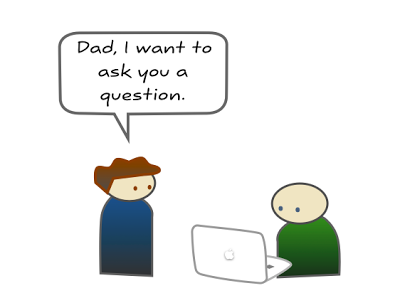

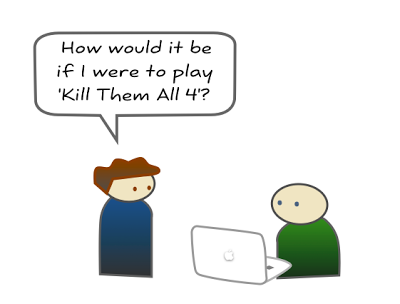

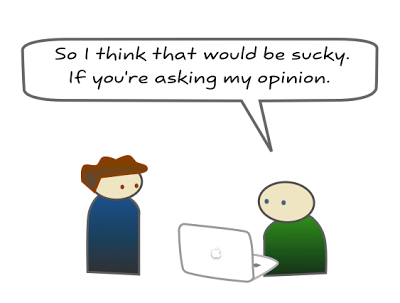
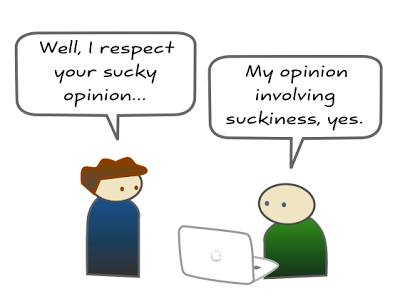
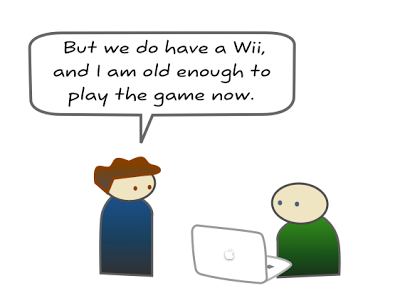
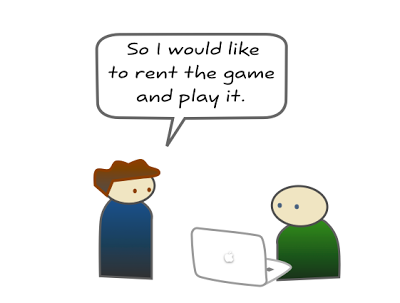
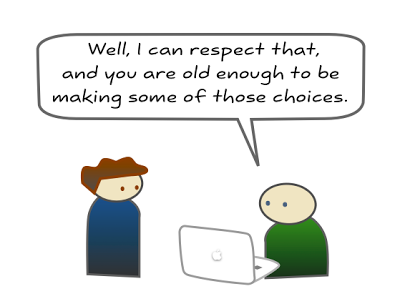
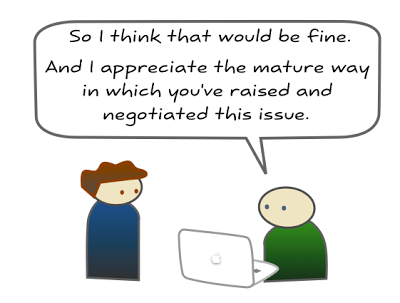
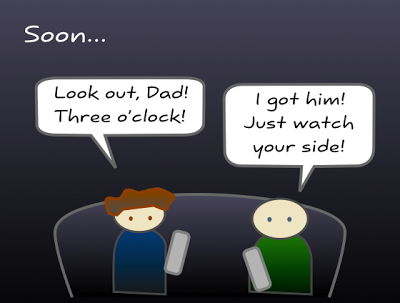
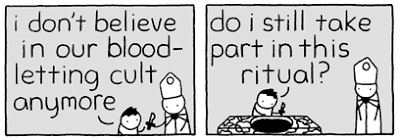

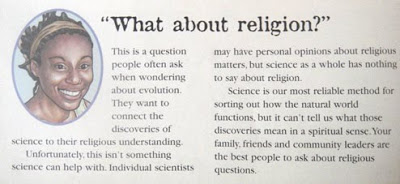

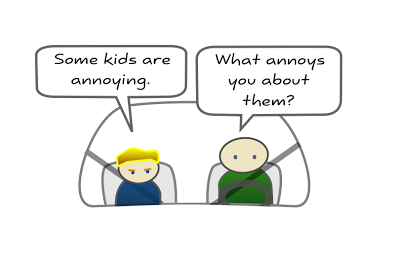

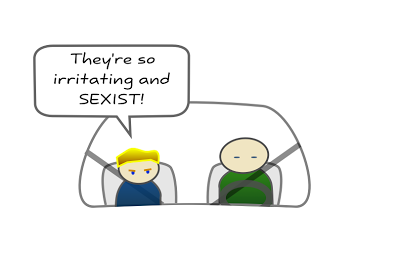
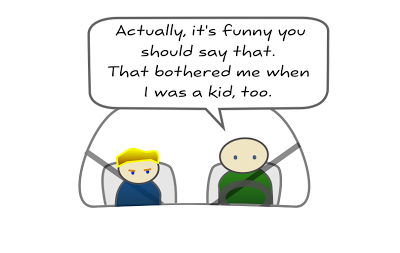
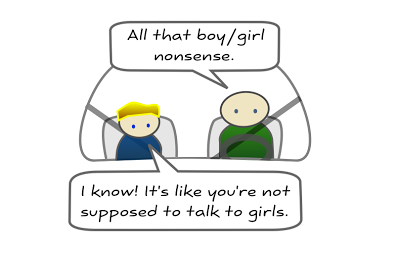
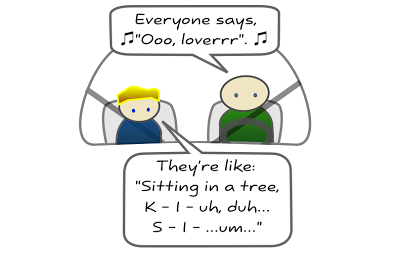
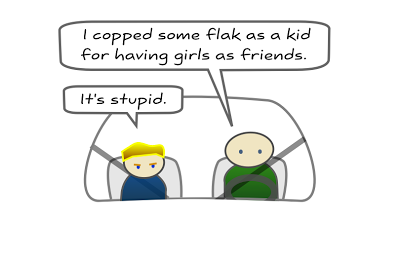
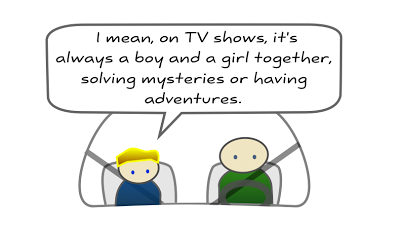
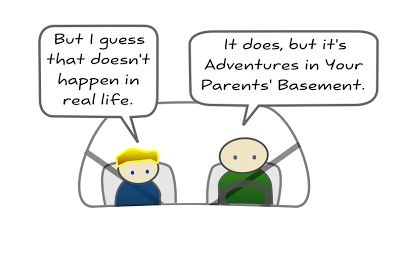
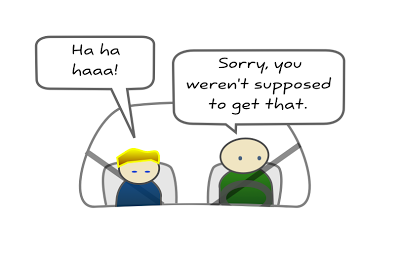
Recent Comments